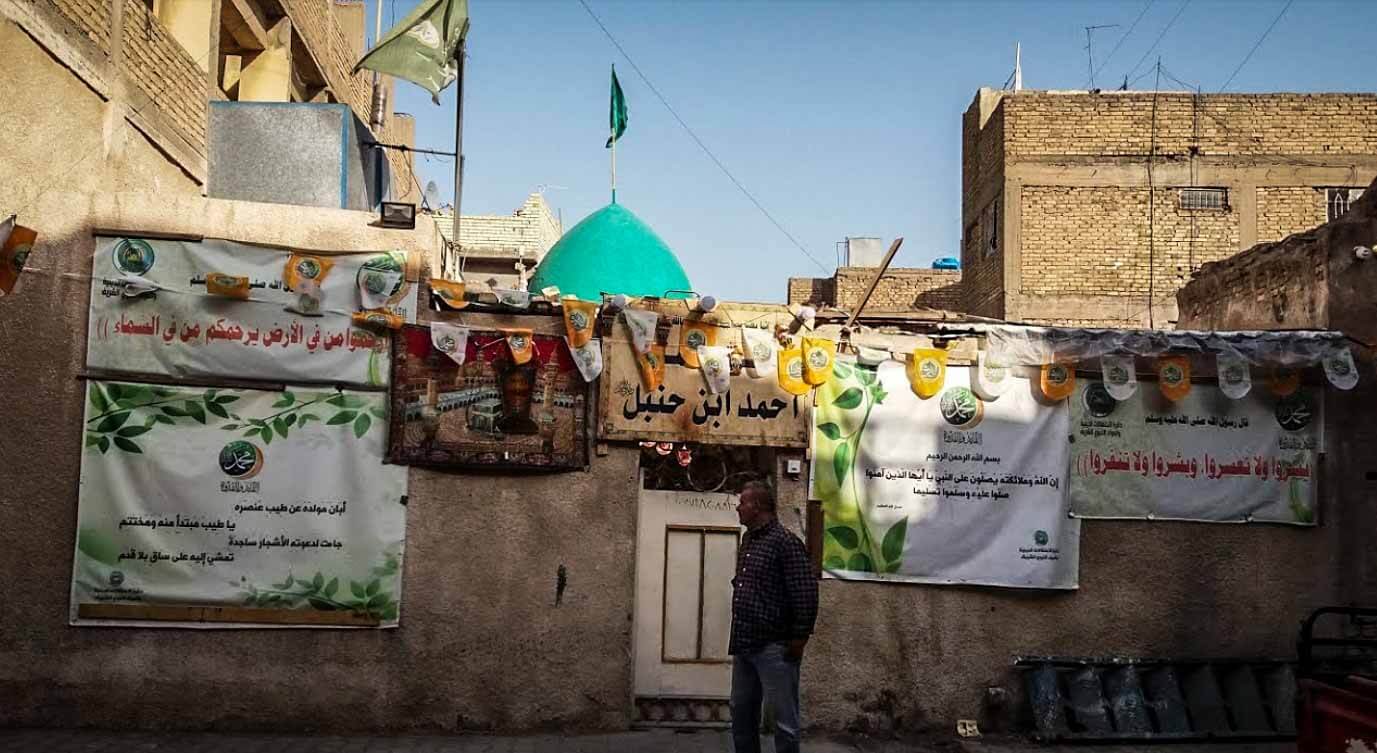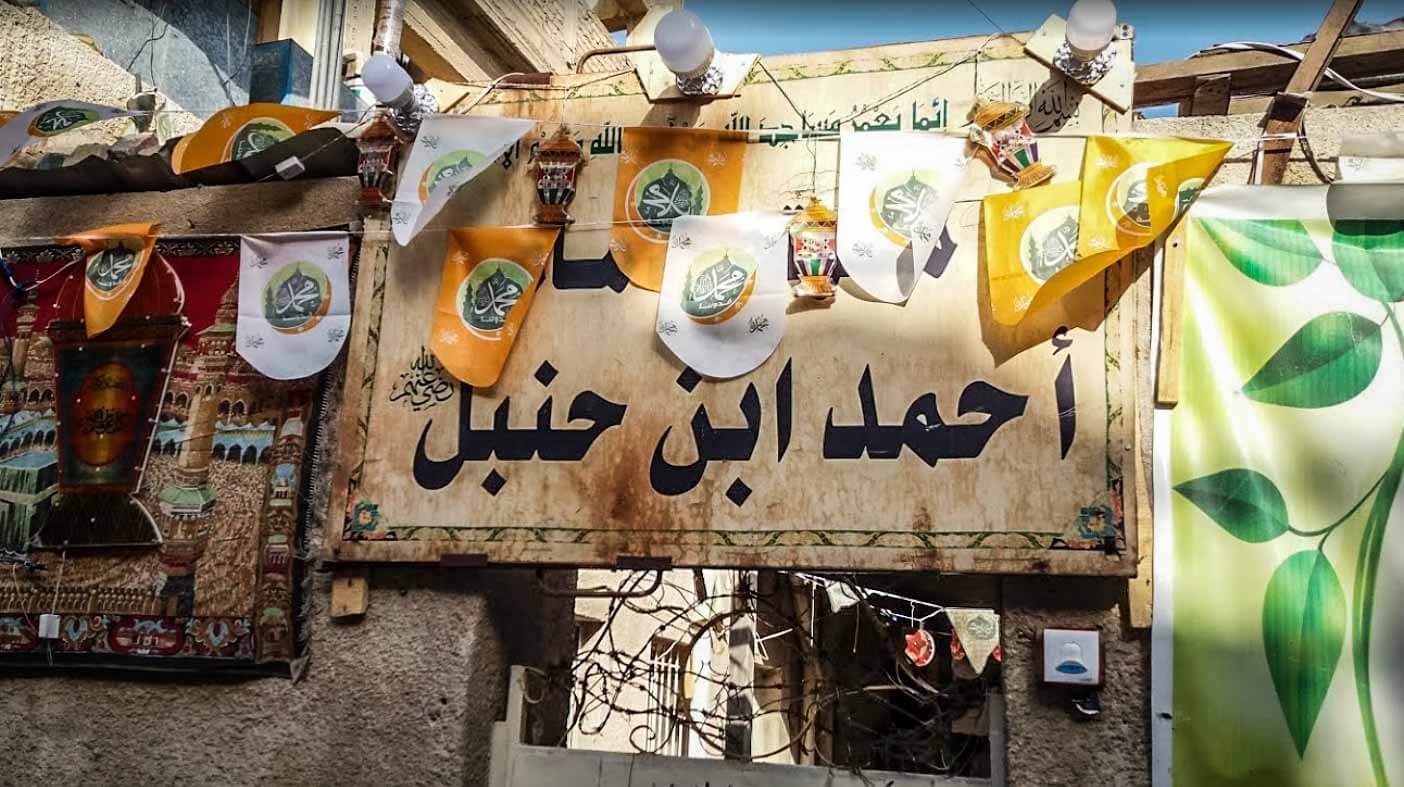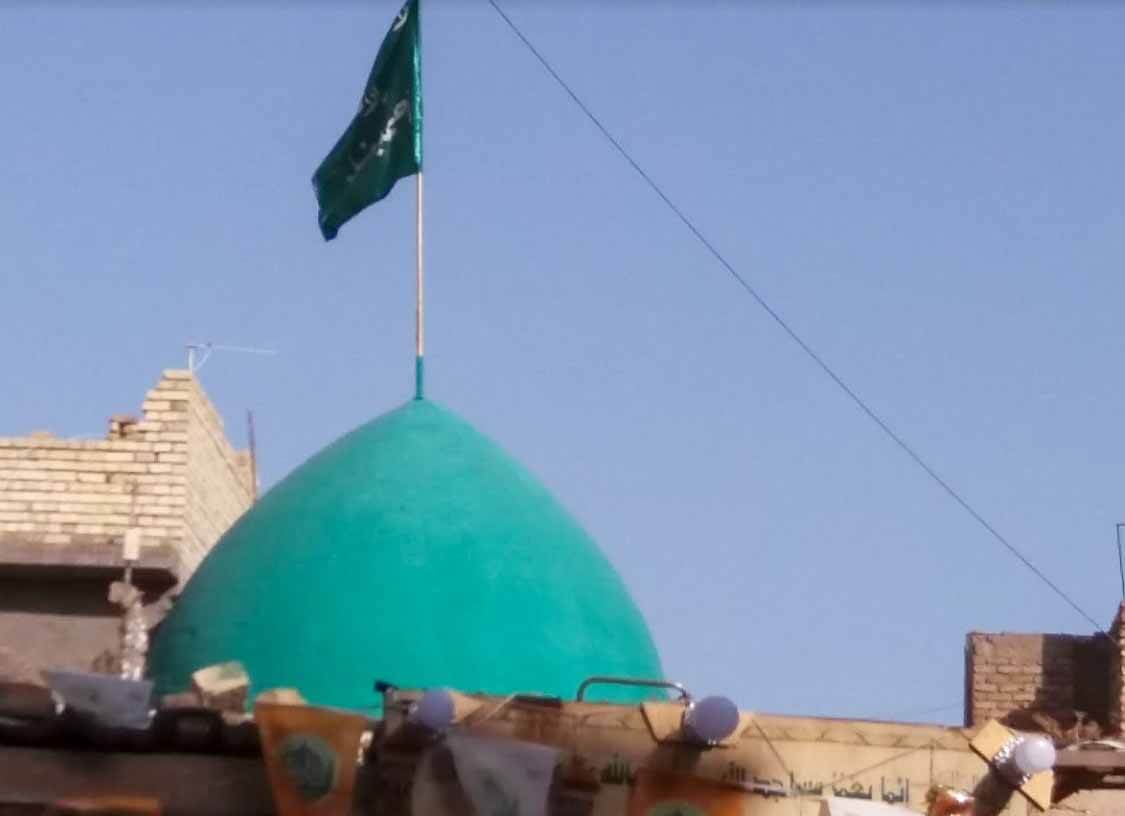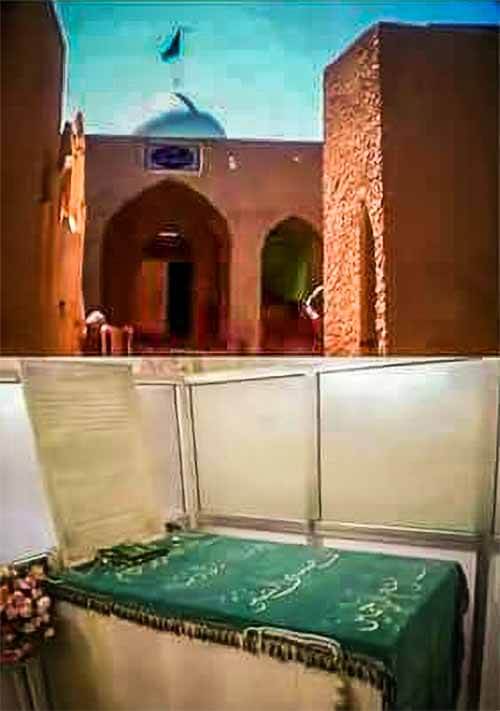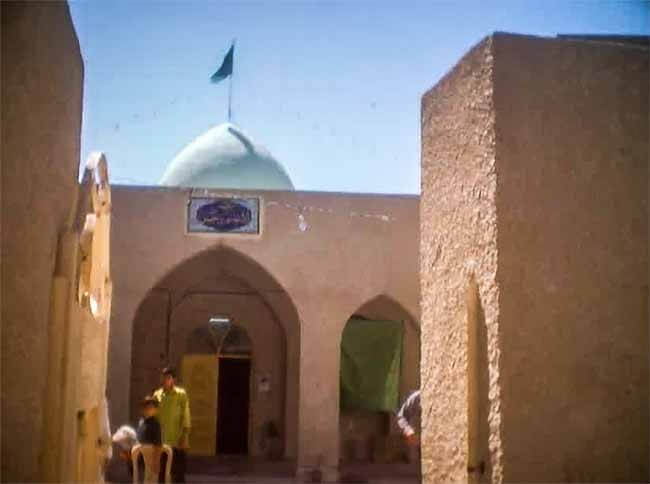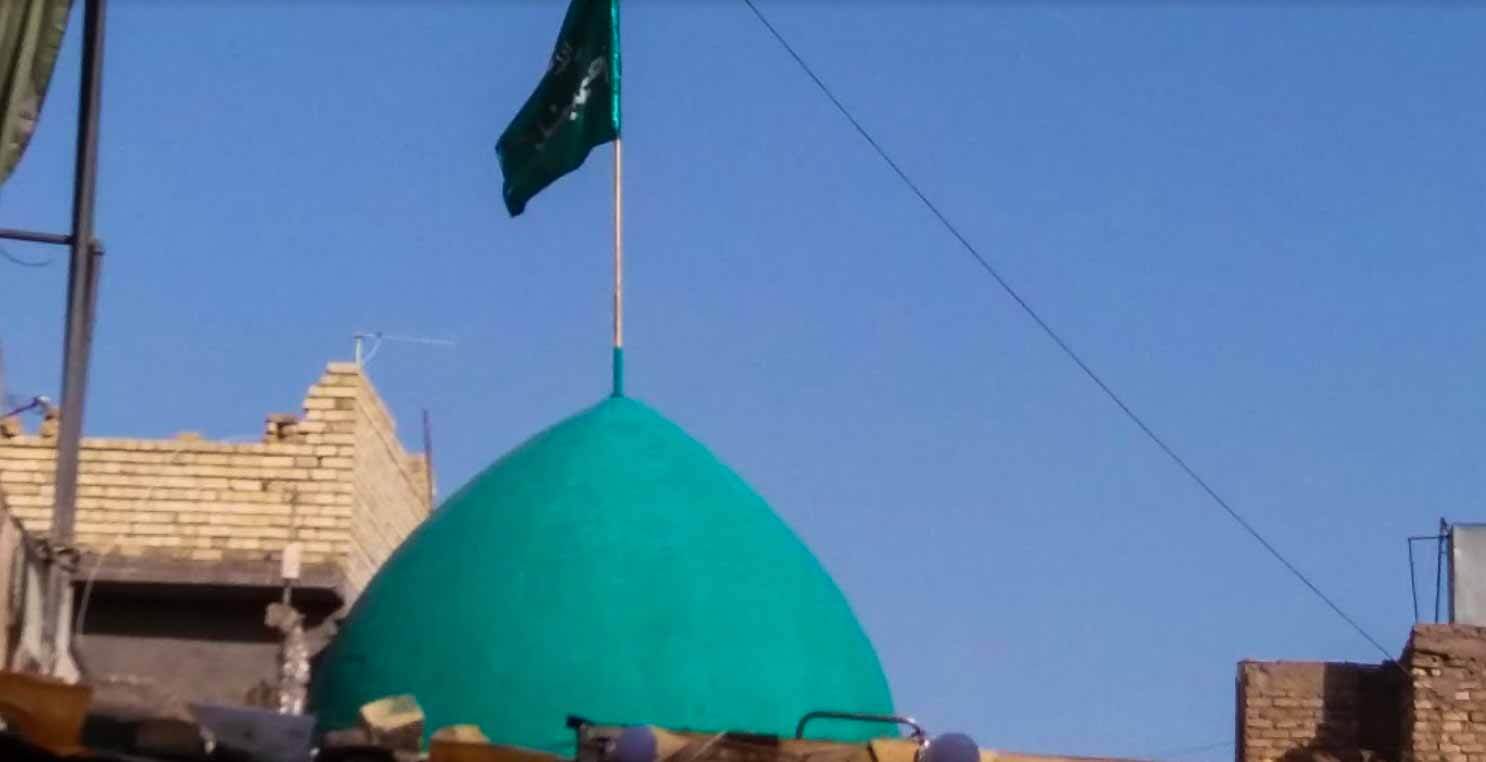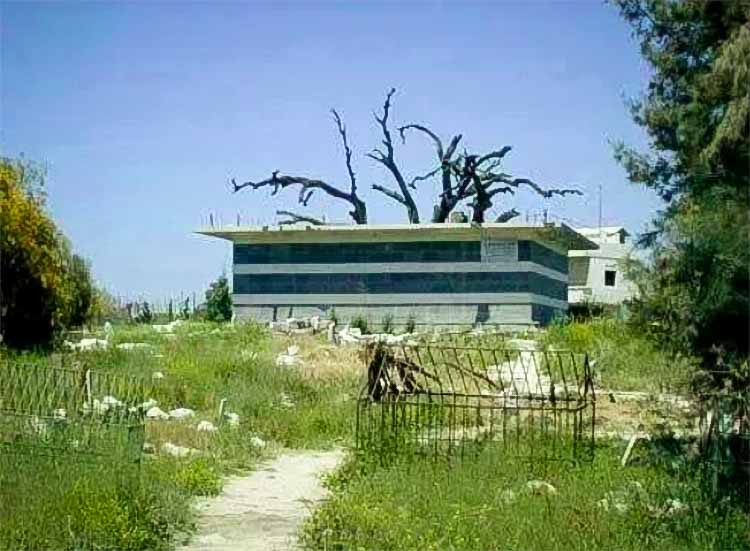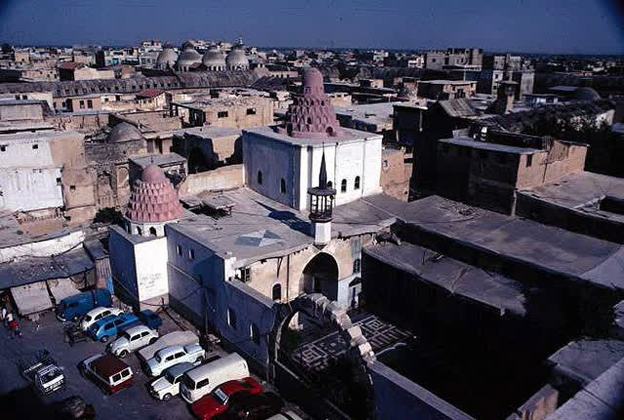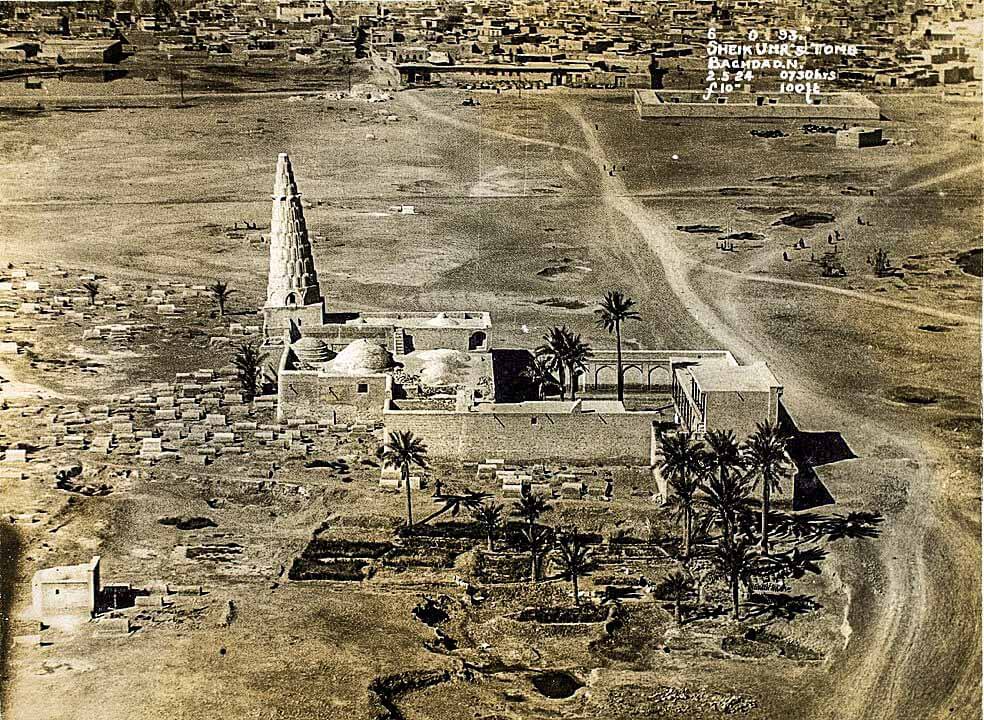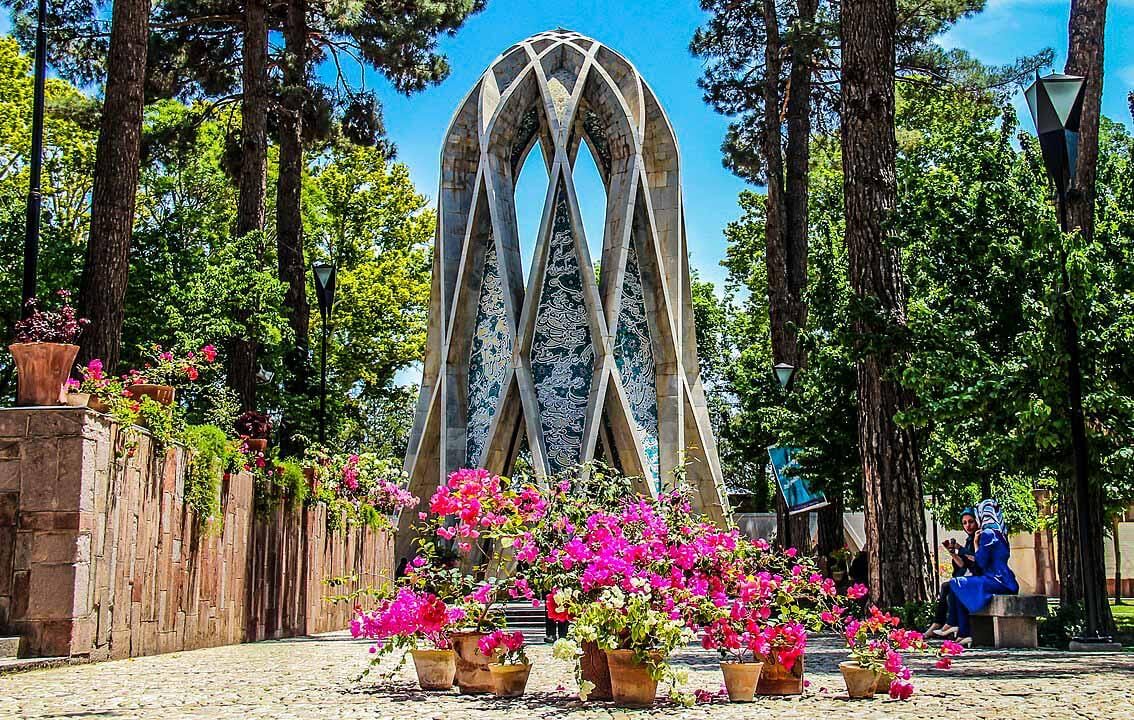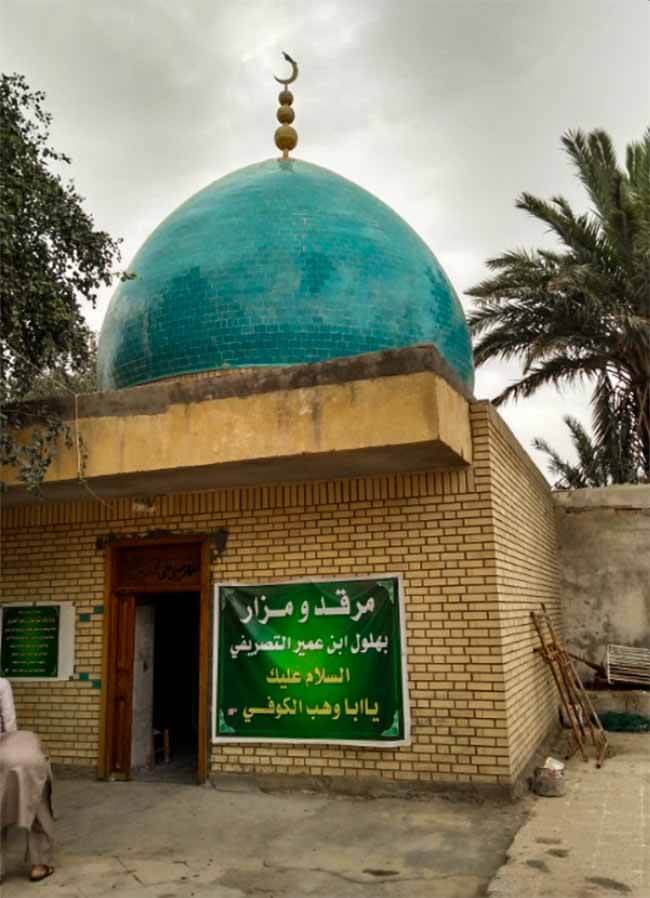Baghdad, Iraq
Coordinates: 33.343376, 44.386666
Ahmad Ibn Hanbal رحمة الله عليه for short, was an Arab Muslim jurist, theologian, ascetic, hadith traditionist, and founder of the Hanbali school of Sunni jurisprudence — one of the four major orthodox legal schools of Sunni Islam.
A highly influential and active scholar during his lifetime, Ibn Hanbal رحمة الله عليه went on to become “one of the most venerated” intellectual figures in Islamic history, who has had a “profound influence affecting almost every area of” the traditionalist (literalism-oriented) perspective within Sunni Islam.
Ibn Hanbal رحمة الله عليه compiled one of the most important Sunni hadith collections, the Musnad, which has continued to exercise considerable influence in the field of hadith studies up to the present time.
Having studied fiqh and hadith under many teachers during his youth, Ibn Hanbal رحمة الله عليه became famous in his later life for the crucial role he played in the Mihna, the inquisition instituted by the Abbasid Caliph al-Ma’mun towards the end of his reign, in which the ruler gave official state support to the Mutazilite dogma of the Quran being created, a view that contradicted the orthodox doctrine of the Quran being the eternal, uncreated Word of God.
Suffering physical persecution under the caliph for his unflinching adherence to the traditional doctrine, Ibn Hanbal رحمة الله عليه’s fortitude in this particular event only bolstered his “resounding reputation” in the annals of Sunni history.
Throughout Sunni Islamic history, Ibn Hanbal رحمة الله عليه was venerated as an exemplary figure in all the traditional schools of Sunni thought, both by the exoteric ulema and by the mystics, with the latter often designating him as a saint in their hagiographies.
The fourteenth-century hadith master al-Dhahabi referred to Ibn Hanbal رحمة الله عليه as “the true Shaykh of Islam and leader of the Muslims in his time, the Hadith master and Proof of the Religion.”
Death
Ibn Hanbal رحمة الله عليه passed away on Friday, 12 Rabi-ul-awwal, 241 AH/ 2 August, 855 at the age of 74-75 in Baghdad, Iraq.
Historians relate that his funeral was attended by 800,000 men and 60,000 women and that 20,000 Christians and Jews converted to Islam on that day.
His qabr (grave) is located in the premises of the Imam Ahmad Bin Hanbal Shrine in Ar-Rusafa District.


